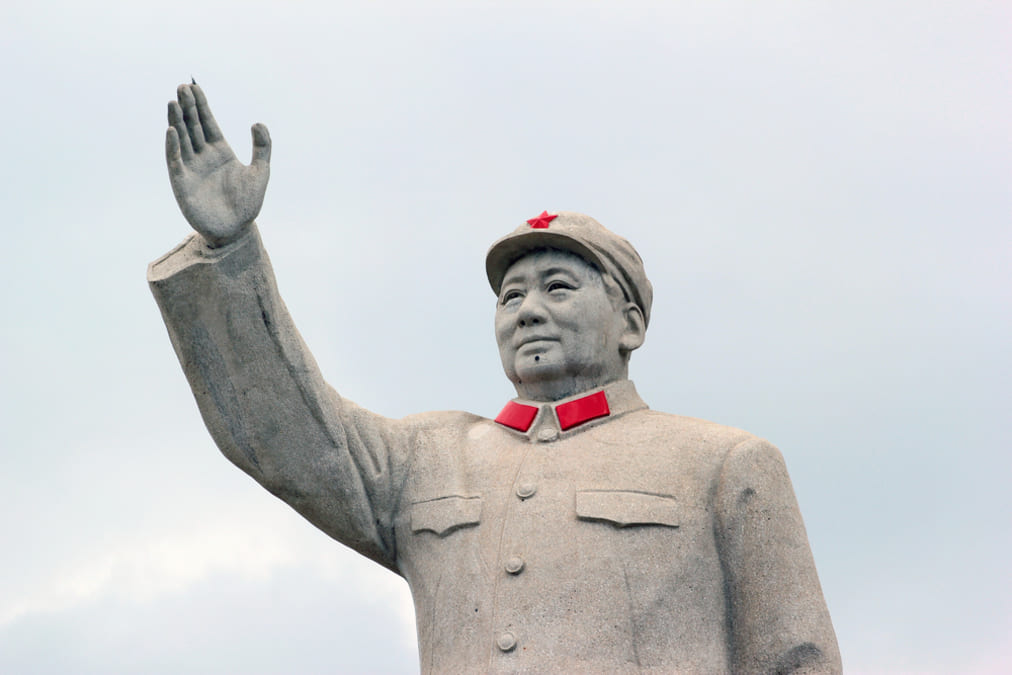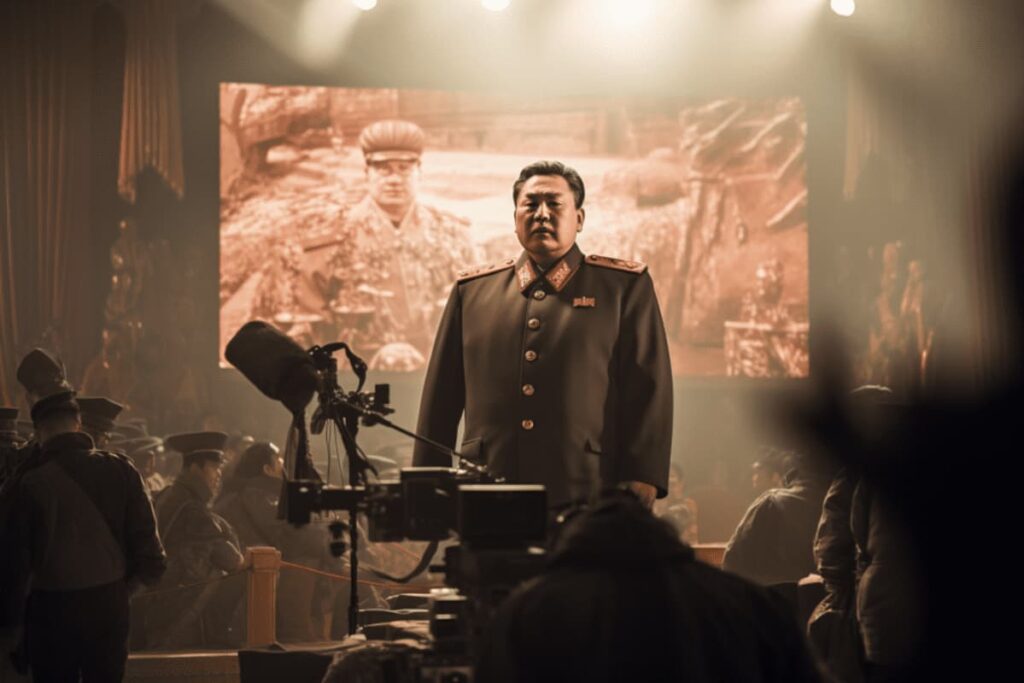Throughout history, the world has witnessed the rise and fall of numerous leaders. While many have been champions of progress, peace, and prosperity, others have left behind legacies of oppression, terror, and mass atrocities. These dictators, driven by a thirst for power, ideology, or sheer megalomania, have shaped the course of history in profound and often devastating ways. Their reigns, marked by human rights abuses, wars, and genocides, have had lasting impacts on their nations and the world at large.
Table of Contents
Adolf Hitler (1889-1945)

Adolf Hitler, born in Braunau am Inn, Austria, rose to power as the leader of the National Socialist German Workers’ Party, more commonly known as the Nazi Party. His virulent anti-Semitic beliefs and ultra-nationalistic vision for Germany drove him to initiate aggressive expansionist policies. These ambitions led to the annexation of several territories and eventually sparked World War II after the invasion of Poland in 1939.
Central to Hitler’s reign of terror was the systematic extermination of six million Jews, along with millions of Romani people, Poles, Soviets, and other groups, in what is now known as the Holocaust. Concentration and extermination camps like Auschwitz became symbols of the horrors of his regime. Hitler’s leadership ended with his suicide in 1945 as Allied forces closed in on Berlin.
Joseph Stalin (1878-1953)

Joseph Stalin, originally from Gori, Georgia, became the paramount leader of the Soviet Union after the death of Vladimir Lenin. Under his leadership, the Soviet Union underwent rapid industrialization and collectivization, but at a tremendous human cost. Stalin’s paranoia led to the Great Purge between 1936 and 1938, where countless individuals, including members of the Communist Party, military officers, and ordinary citizens, were accused of being “enemies of the state.”
Many were executed, sent to gulags, or imprisoned. Stalin’s policies, including forced collectivization, resulted in widespread famines, most notably the Holodomor in Ukraine. Despite his brutal rule, he also played a pivotal role in the defeat of Nazi Germany during World War II.
Mao Zedong (1893-1976)

Mao Zedong, often referred to as Chairman Mao, was the key figure behind the Chinese Communist Revolution. Born in Shaoshan, Hunan Province, Mao’s vision was to reshape Chinese society through communism. His policies, including the Great Leap Forward, aimed at rapid industrialization and collectivization but led to one of the deadliest famines in history, causing the deaths of millions.
Mao’s later initiative, the Cultural Revolution (1966-1976), sought to purge capitalist and traditional elements from Chinese society, leading to widespread persecution, destruction of cultural heritage, and countless deaths. Despite the controversies surrounding his leadership, Mao remains a central figure in modern Chinese history.
Pol Pot (1925-1998)

Born as Saloth Sar in Prek Sbauv, Cambodia, Pol Pot became the leader of the Khmer Rouge, the communist party in Cambodia. Under his leadership, the Khmer Rouge seized Phnom Penh in 1975 and began a radical experiment to create an agrarian utopia. This involved the forced evacuation of cities, mass executions, and labor camps.
Intellectuals, professionals, and even those who wore glasses were targeted as enemies of the revolution. The regime’s extreme policies led to widespread famine, disease, and death. The Killing Fields of Choeung Ek stand as a grim testament to the atrocities of his regime. Pol Pot’s reign ended in 1979 when Vietnamese forces invaded Cambodia.
Kim Il-sung (1912-1994)

Kim Il-sung, known as the “Eternal President,” was the founding leader of North Korea. Born in Mangyongdae, near Pyongyang, Kim’s leadership was marked by the establishment of a totalitarian regime characterized by a strong cult of personality, widespread human rights abuses, and an emphasis on self-reliance, known as Juche.
Kim’s rule saw the Korean War (1950-1953), a conflict initiated by the North’s invasion of South Korea. The war ended in an armistice, but no peace treaty was signed, leaving the two Koreas technically at war to this day.
Saddam Hussein (1937-2006)

Born in Tikrit, Iraq, Saddam Hussein rose to power in the turbulent political landscape of Iraq and became its president in 1979. His leadership was marked by a series of brutal wars, most notably the Iran-Iraq War (1980-1988) and the Gulf War (1990-1991) following Iraq’s invasion of Kuwait. Domestically, Hussein maintained his grip on power through fear and repression.
He initiated genocidal campaigns against the Kurdish population in the north and the Shiite population in the south, using chemical weapons in places like Halabja. His regime was notorious for its human rights abuses, including torture, extrajudicial killings, and mass disappearances. Hussein’s rule ended following the U.S.-led invasion of Iraq in 2003. He was captured, tried, and executed in 2006.
Benito Mussolini (1883-1945)

Benito Mussolini, born in Predappio, Italy, is best known as the founder of Italian Fascism. He established a totalitarian regime in Italy, emphasizing nationalism, militarism, and anti-communism. Under his leadership, Italy pursued aggressive expansionist policies, invading Ethiopia and later allying with Nazi Germany during World War II.
Mussolini’s regime suppressed political dissent, controlled the media, and propagated a cult of personality around Il Duce (“The Leader”), as he was known. As the war turned against the Axis powers, Mussolini faced internal dissent and was eventually arrested. He was rescued by German forces but was captured and executed by Italian partisans in 1945.
Idi Amin (1925-2003)

Idi Amin Dada, often referred to as the “Butcher of Uganda,” seized power in a military coup in 1971. Born in Koboko, Uganda, Amin’s rule was characterized by extreme brutality, political repression, and economic mismanagement. Ethnic and political groups were targeted in purges, leading to the deaths of an estimated 300,000 to 500,000 Ugandans.
Amin’s unpredictable behavior and penchant for self-aggrandizement, including declaring himself the “King of Scotland,” made him infamous worldwide. His regime collapsed in 1979 following a Tanzanian-led invasion, and Amin lived in exile in Saudi Arabia until his death in 2003.
Leopold II of Belgium (1835-1909)

King Leopold II of Belgium, while a constitutional monarch in Belgium, became the absolute ruler of the Congo Free State, which he controlled as a personal fiefdom. Under the guise of bringing civilization and Christianity to Africa, Leopold exploited the Congo’s vast rubber resources. The local population was subjected to forced labor, brutal punishments, and widespread atrocities.
It’s estimated that the population of the Congo was halved, with millions dying as a direct result of Leopold’s exploitative policies. International outcry eventually led to the Belgian state taking control of the colony in 1908, but the legacy of Leopold’s brutal rule left deep scars.
Francois Duvalier (1907-1971)

Francois Duvalier, known as “Papa Doc,” ruled Haiti with an iron fist from 1957 until his death in 1971. Born in Port-au-Prince, Duvalier trained as a physician, which led to his nickname. As president, he established a repressive regime, consolidating power through violence, intimidation, and corruption.
His paramilitary force, the Tonton Macoute, became infamous for its brutality, torturing and killing perceived enemies of the state. Duvalier promoted “Noirisme,” a form of Black nationalism, and declared himself “President for Life” in 1964. His rule, marked by political repression, economic decline, and widespread human rights abuses, continued under his son, Jean-Claude “Baby Doc” Duvalier, after his death.
The actions and policies of these leaders serve as stark reminders of the depths to which humanity can sink when power is unchecked. Their legacies underscore the importance of vigilance, education, and the defense of human rights in all corners of the world.








